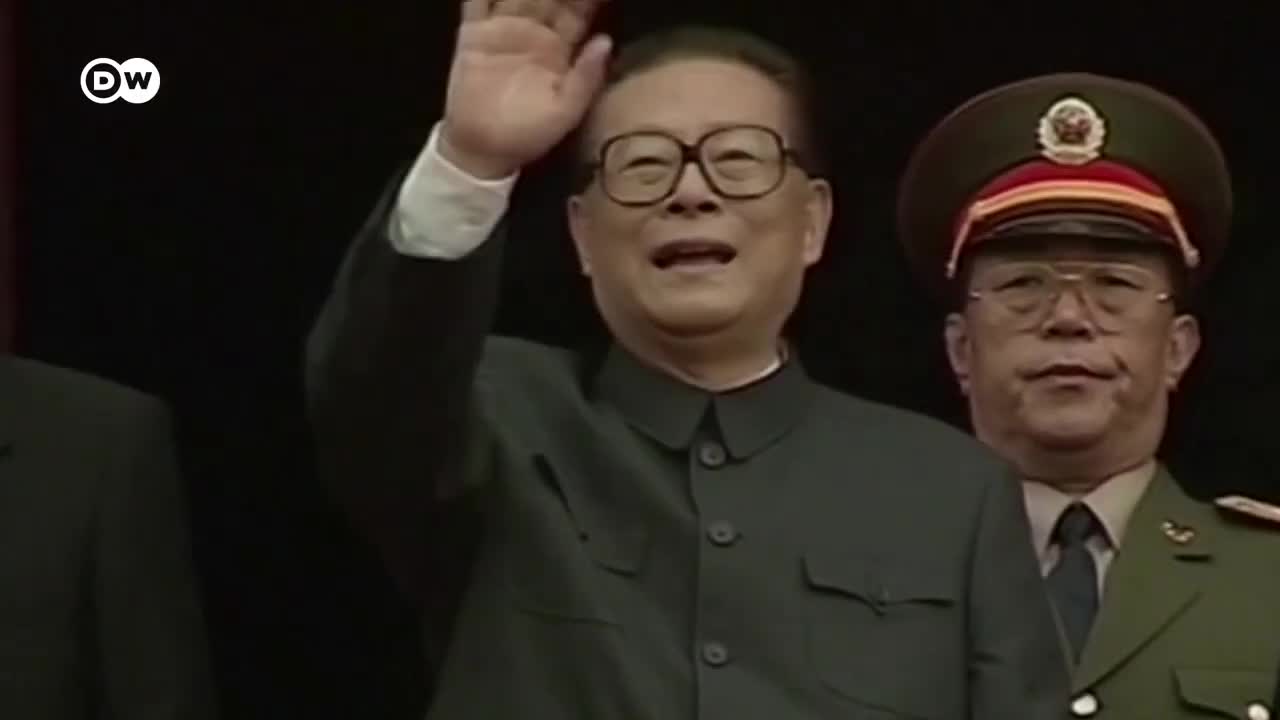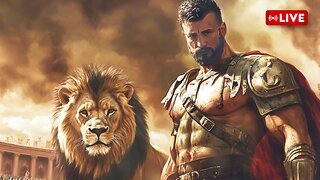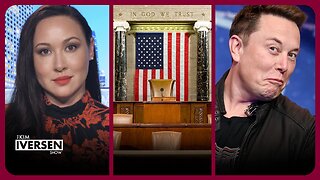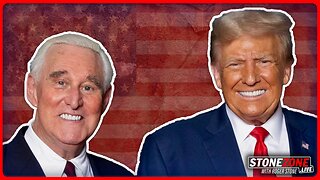Premium Only Content

Former Chinese leader Jiang Zemin dies at 96
China's former President Jiang Zemin has died. Under his rule, the economy grew rapidly, but he rejected political freedoms. Yet without the Chinese democracy movement, he would probably never have reached the top.
Rarely was Chinese president seen losing his cool like when Jiang Zemin visited Hong Kong in October 2000 and a Chinese journalist from Hong Kong asked him a critical question.
Jiang then launched into a long, angry speech in which he accused the journalist and the Hong Kong press as a whole of a lack of understanding and immaturity. He even broke into English, saying that the media was "too simple, sometimes naive." The recording went around the world.
Jiang Zemin particularly enjoyed showing off his talent for performance at international meetings. He would surprise the audience with his passable English, recited American literary classics or would deliver a vocal performance. However, as extroverted as China's president appeared during and after his term in office, he was politically reserved for most of his career.
Hardworking and inconspicuous
Jiang Zemin was born on August 17, 1926, in Jiangsu Province, when the internal power struggle between Communists and Nationalists (GMD) began in China.
This was compounded by Japan's continued expansion into mainland China since the early 1930s. Presumably, foreign domination and civil war sparked Jiang's interest in politics. Although he studied electrical engineering at the renowned Jiaotong University in Shanghai, he joined the Communist Party in April 1946. He did not initially aspire to a political career.
Instead, he worked as an engineer in various companies, including a year in Moscow in the mid-1950s. When the Cultural Revolution broke out in 1966 at the instigation of party leader Mao Zedong, Jiang's political restraint served him well. He was an engineer, did his work, and showed himself to be neither an opponent nor a supporter of the revolution. This and his modest lifestyle ensured that he remained unmolested by the Red Guards.
In foreign policy, Jiang succeeded in leading his country out of the political isolation into which China had fallen after the 1989 massacre.
China's accession to the WTO, and the reintegration of Hong Kong, are among his greatest successes.
In addition, China experienced a rapid economic rise under Jiang. However, political liberalization did not take place under Jiang. Although Jiang was the first Chinese president to give interviews to foreign journalists, he restricted freedom of the press in China. He also took a harsh course against the religious Falun Gong movement, which was banned in 1999.
Jiang relinquished the post of general secretary in 2002, but he retained the chairmanship of the Central Military Commission until 2005. Even after his retirement, he appeared publicly in the media or at party events.
Until the end, he held a kind of background eminence in Chinese politics, and his word carried weight. On November 30, Jiang Zemin died at the age of 96.
-
 5:50
5:50
Last World News Channel
1 month agoTrump calls for investigation into pollster for disastrously wrong prediction
911 -
 LIVE
LIVE
SpartakusLIVE
4 hours agoYoung Spartan STUD teams with old gamers for ultimate BANTER with a SMATTERING of TOXICITY
585 watching -
 1:50:39
1:50:39
Kim Iversen
5 hours agoShocking Proposal: Elon Musk for Speaker of the House?! | IDF Soldiers Reveal Atrocities—'Everyone Is a Terrorist'
40.8K59 -
 43:27
43:27
barstoolsports
8 hours agoOld Dog Bites Back | Surviving Barstool S4 Ep. 9
71.8K2 -
 LIVE
LIVE
Right Side Broadcasting Network
7 days agoLIVE: TPUSA's America Fest Conference: Day One - 12/19/24
8,738 watching -
 LIVE
LIVE
Man in America
23 hours agoPfizer Has Been Caught RED HANDED w/ Dr. Chris Flowers
1,446 watching -
 2:24:15
2:24:15
Slightly Offensive
6 hours ago $1.18 earnedAttempted ASSASSINATION of Nick J Fuentes LEAVES 1 DEAD! | Guest: Mel K & Breanna Morello
16.7K11 -
 1:43:08
1:43:08
Roseanne Barr
6 hours ago $2.96 earned"Ain't Nobody Good" with Jesse Lee Peterson | The Roseanne Barr Podcast #79
55.5K27 -

The StoneZONE with Roger Stone
3 hours agoTrump Should Sue Billionaire Governor JB Pritzker for Calling Him a Rapist | The StoneZONE
31.1K3 -
 LIVE
LIVE
Flyover Conservatives
21 hours agoAmerica’s Psychiatrist Speaks Out: Are We Greenlighting Violence? - Dr. Carole Lieberman | FOC Show
730 watching